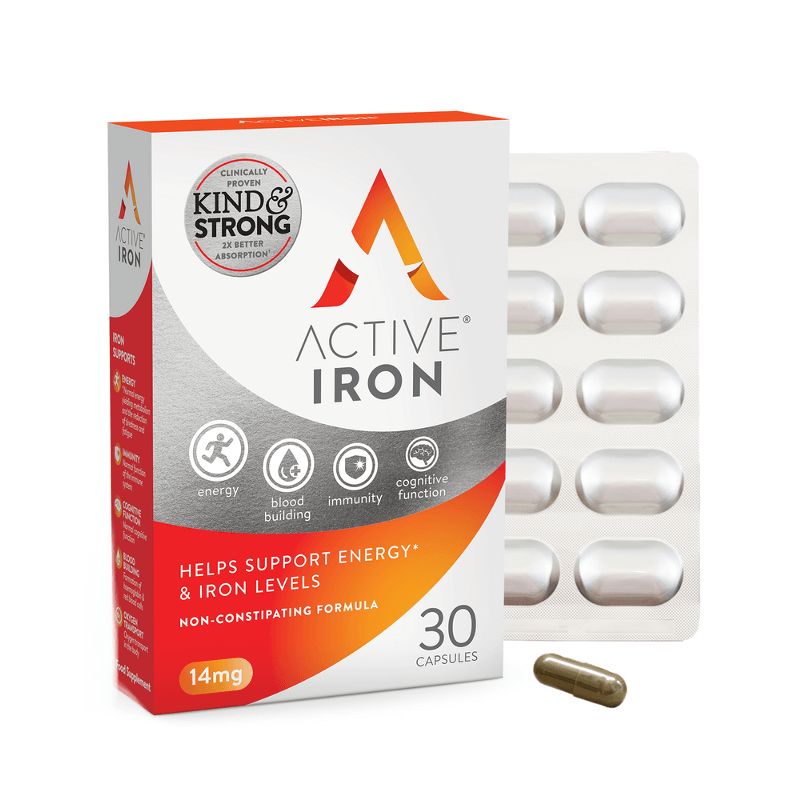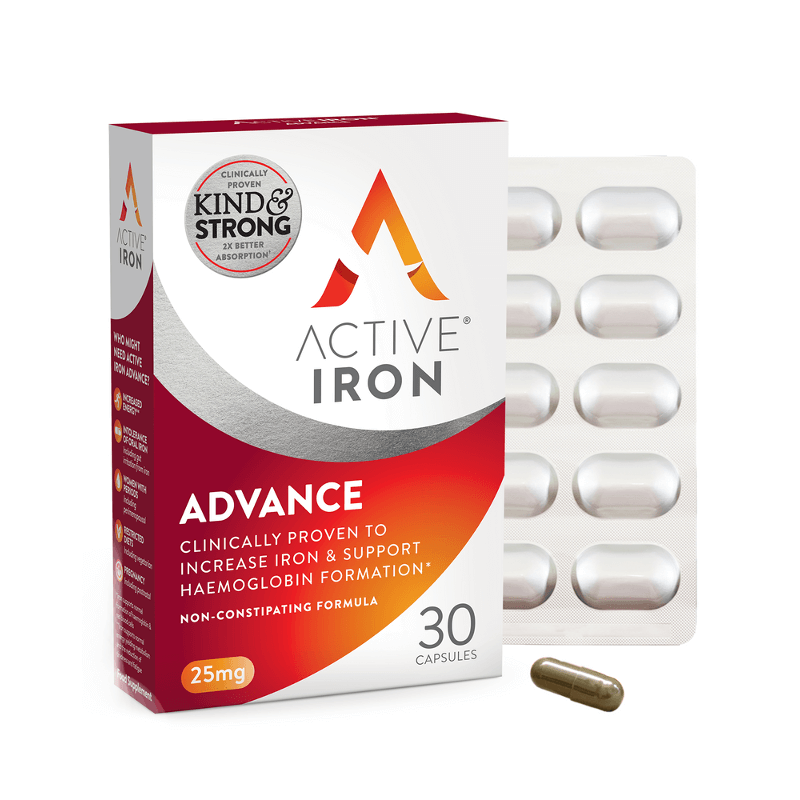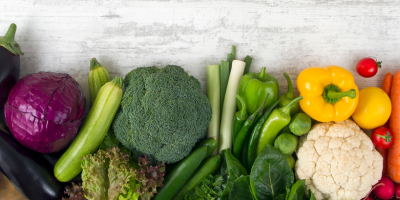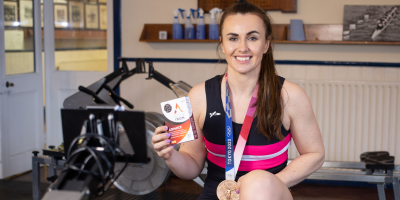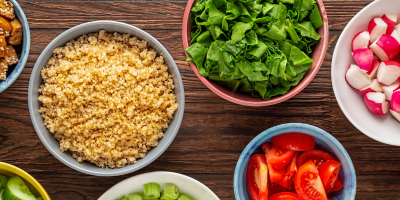Help support your energy levels with Active Iron today.
Iron is essential for energy, as it helps transport oxygen throughout the body. Adequate iron levels ensure optimal oxygenation of cells, promoting energy production and helping to prevent tiredness & fatigue. Iron also plays a role in supporting cognitive function and a healthy immune system.
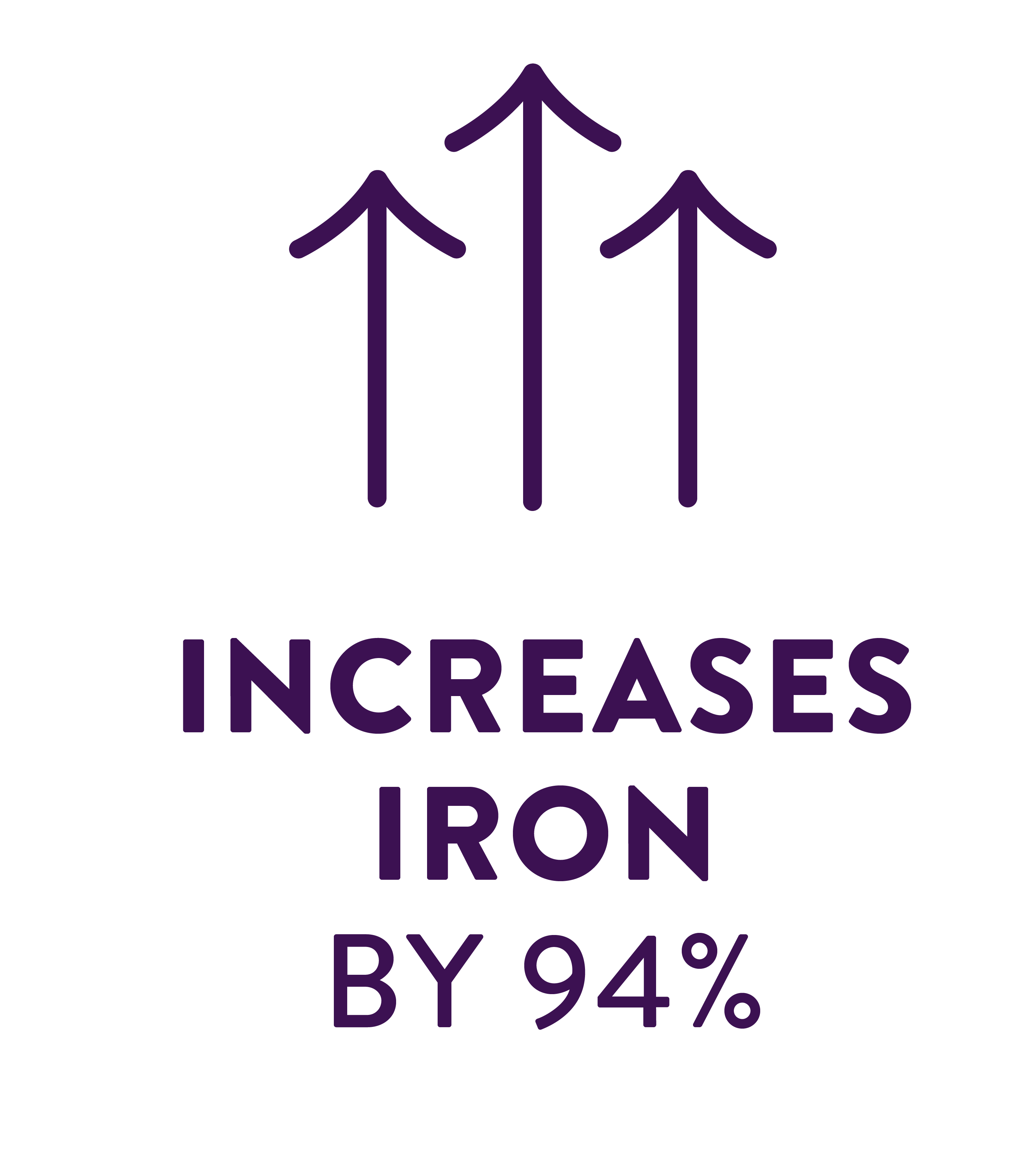
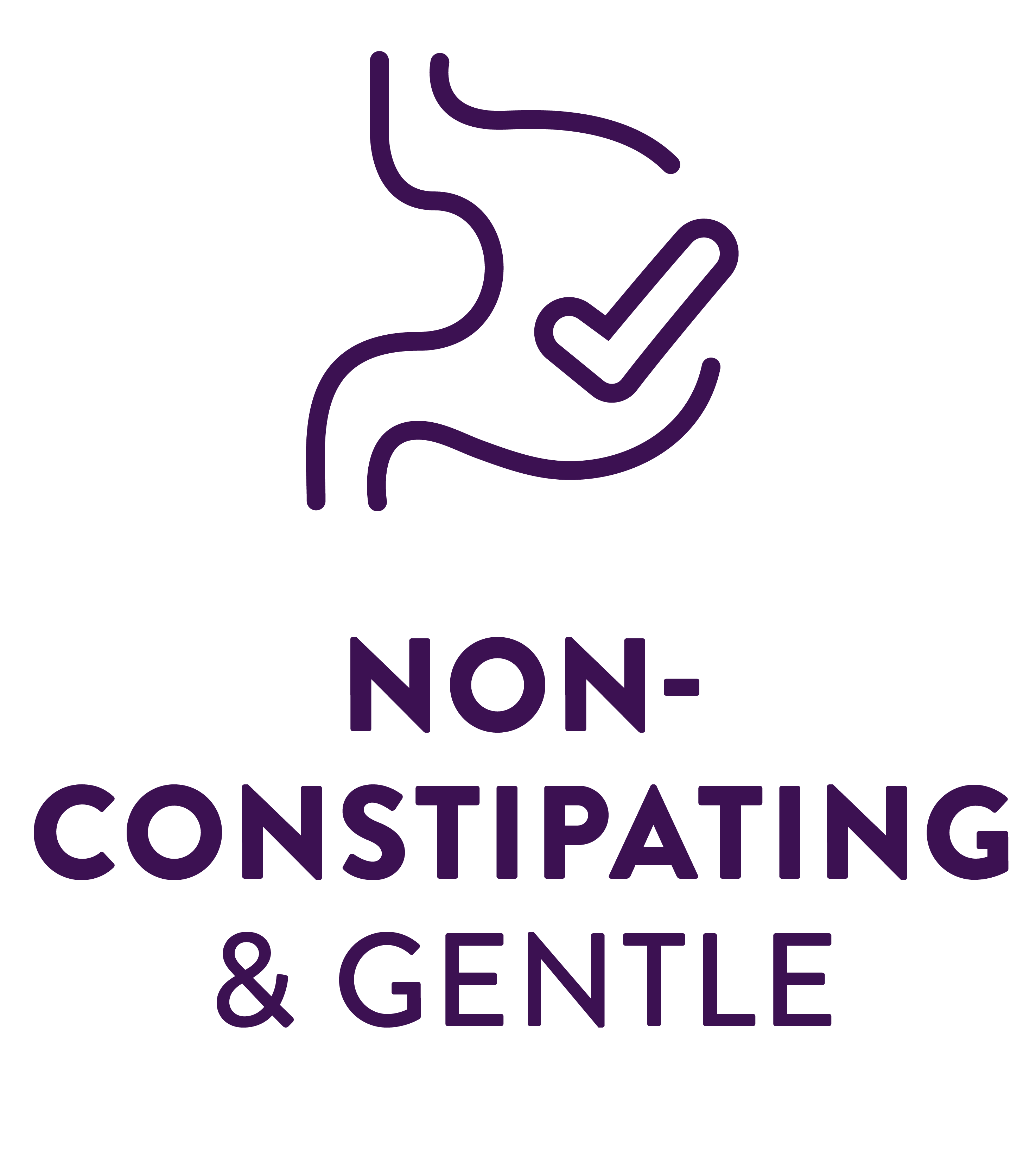
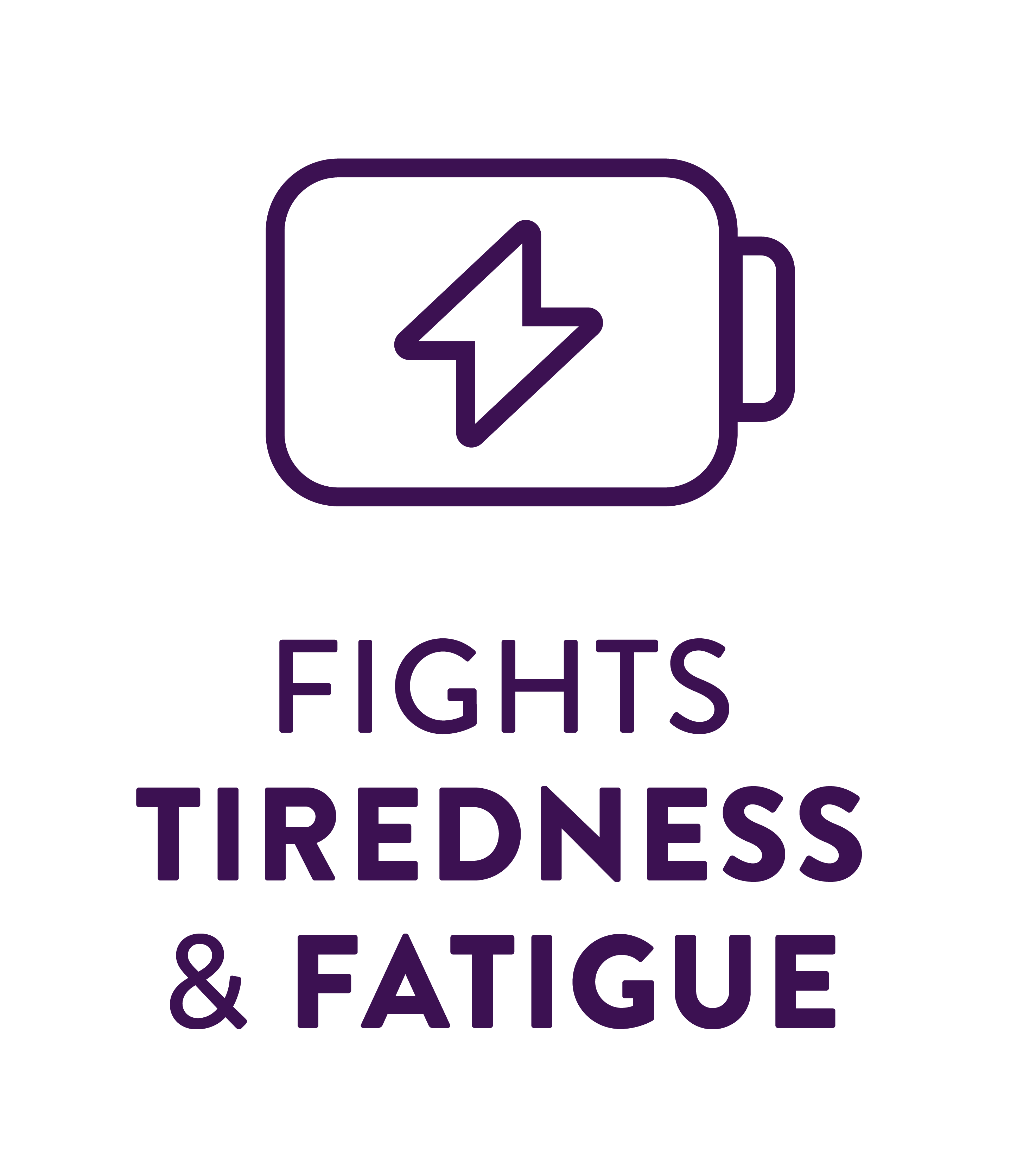
ACTIVE IRON IS DIFFERENT.
Most iron supplements dissolve in the stomach. This can lead to oxidation and gut inflammation, which can lead to common side effects associated with iron supplements, such as constipation and nausea. Active Iron is different. Its ground breaking whey protein formula protects the Iron from oxidation in the stomach and carries the Iron to the natural site of absorption, the DMT-1. As a result, Active Iron is highly absorbed compared to other iron supplements¹, making it gentle on the stomach and clinical results have shown that it increases iron levels by 94%².
FAQs.
What are the best supplements for tiredness?
Iron contributes to the reduction of tiredness and fatigue. It plays an important role in normal energy metabolism, oxygen transport, cognitive function, immune function and formation of red blood cells and haemoglobin. Active Iron is clinically proven to increase iron and energy levels to help combat tiredness and fatigue1. Active Iron Women contains 17mg of iron plus a complete multivitamin, helping support iron levels and women’s nutritional needs. Active Iron Men contains 14mg of iron plus a complete multivitamin, supporting men’s nutritional needs.
How can iron boost my energy?
Iron is one of the most vital minerals for our cells. Our primary energy source is food, and our cells need iron to convert food into energy. Having the optimal amount of iron in your body, will help give you more energy. However, an excess of iron can lead to some health problems, so stay within the recommended range.
How long does it take for iron to give you energy?
Most people feel positive effects from taking iron supplements after 3 weeks, but it may take up to 12 weeks to feel a noticeable increase in energy levels. Iron needs differ from person to person, as such, everyone feels the effects of iron supplementation on their own timelines.
Active Iron is clinically proven to increase iron and energy levels by 94% within 6 weeks1, but many start to feel the benefits earlier than that.
Can having low iron make you tired?
Tiredness or a lack of energy (fatigue) is commonly associated with a diet low in iron. If your iron supplement is working, the first thing you should notice is an increase in your energy levels. However, when this will occur varies from person to person. It is dependent on your levels of iron both in storage and in circulation.
What are the symptoms of low iron?
Having low iron levels may cause you to feel tired, lacking in energy, weak, or having trouble concentrating. If you think you have low iron levels, you should consult with a healthcare professional and get a blood test.
Who can benefit from taking iron supplements?
Active Iron contains the recommended daily dose of iron for healthy adults. Those who benefit from taking Active Iron include:
- Restricted diets, inc. vegetarians
- Blood donors
We recommend Active Iron only to those who have low iron or those who are at risk of developing low iron levels.
What causes tiredness and fatigue?
It’s normal to feel tired sometimes, however if you are tired all of the time and not sure why, it could indicate another problem.
Some common causes of tiredness and fatigue include2:
- Not getting enough sleep or finding it hard to get to sleep.
- An unhealthy lifestyle (such as having an unhealthy diet and not getting much exercise).
- Hormonal changes (such as during puberty, pregnancy or menopause).
- Low iron levels can cause tiredness and fatigue.
What else can I do to support my energy levels?
- Eat a healthy diet and exercise regularly.
- Try to get 6 to 9 hours of sleep every night.
- Stay hydrated, dehydration can lead to fatigue.
- Relax for a few hours before going to bed.
- Include iron rich foods in your diet.
Our blog.
Pregnancy Food Cravings and What They Mean
Pregnancy is a time of profound change, not only physically but also in dietary preferences. Many pregnant women experience food cravings that range from mildly unusual to rather bizarre. These cravings can be a source of curiosity, amusement, and sometimes even...
Olympic rower Aifric Keogh: We need to educate more young female athletes on periods
Irish Olympic rower Aifric Keogh has called for more research and support for young athletes dealing with their periods at the pinnacle of elite sport. We are just weeks away from the Olympics, an event that will once again etch its name in the history books by...
Foods to Avoid While Pregnant: What Not to Eat When Pregnant
Pregnancy is a crucial time when proper nutrition plays a vital role in the health of both the mum and the developing baby. It’s advised certain foods should be avoided to ensure a healthy pregnancy and to help minimise risks. Here's my comprehensive guide on what...

